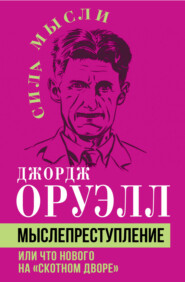По всем вопросам обращайтесь на: info@litportal.ru
(©) 2003-2024.
✖
1984
Настройки чтения
Размер шрифта
Высота строк
Поля
“It was a good hanging,” said Syme. “I think it spoils it when they tie their feet together. I like to see them kicking. And above all, at the end, the tongue sticking right out, and blue—a quite bright blue. That’s the detail that appeals to me.”
“Next”, please!” yelled the prole with the ladle.
Winston and Syme pushed their trays and got their lunch—a stew, a hunk of bread, a cube of cheese, a mug of milkless Victory Coffee, and one saccharine tablet.
“There’s a table over there, under that telescreen,” said Syme. “Let’s pick up a gin on the way.”
The gin was served out to them in handleless china mugs. They walked to the metal table, sat down, and began eating.
“How is the Dictionary getting on?” said Winston.
“Slowly,” said Syme. “I’m on the adjectives. It’s fascinating.”
He had brightened up immediately at the mention of Newspeak.
“The Eleventh Edition is the definitive edition,” he said. “We’re getting the language into its final shape—the shape it’s going to have when nobody speaks anything else. When we’ve finished with it, people like you will have to learn it all over again.”
He bit hungrily into his bread, then continued speaking.
“It’s a beautiful thing, the destruction of words. Take “good”, for instance. If you have a word like “good”, what need is there for a word like “bad”? “Ungood” will do just as well—better, because it’s an exact opposite, which the other is not. Or again, if you want a stronger version of “good”, what sense is there in having a whole string of vague useless words like “excellent” and all the rest of them? “Plusgood” covers the meaning. Don’t you see the beauty of that, Winston?”
A sort of vapid eagerness showed on Winston’s face. Syme immediately detected the lack of enthusiasm.
“You haven’t a real appreciation of Newspeak, Winston,” he said almost sadly. “Even when you write it you’re still thinking in Oldspeak. I’ve read some of those pieces that you write in “The Times” occasionally. They’re good enough, but they’re translations. Do you know that Newspeak is the only language in the world whose vocabulary gets smaller every year?”
Winston did know that, of course.
“Don’t you see that the whole aim of Newspeak is to narrow the range of thought? In the end we shall make thoughtcrime literally impossible, because there will be no words in which to express it. Has it ever occurred to you, Winston, that by the year 2050, at the very latest, not a single human being will be alive who could understand such a conversation as we are having now?”
“Except—” began Winston doubtfully, and he stopped.
It had been on the tip of his tongue to say “Except the proles,” but he stopped himself.
One of these days, thought Winston with sudden deep conviction, Syme will be vaporized. He is too intelligent. He sees too clearly and speaks too plainly. The Party does not like such people. One day he will disappear. It is written in his face.
Winston had finished his bread and cheese. Syme had fallen silent for a moment.
“There is a word in Newspeak,” said Syme, “I don’t know whether you know it: DUCKSPEAK, to quack like a duck. It is one of those interesting words that have two contradictory meanings. Applied to an opponent, it is abuse, applied to someone you agree with, it is praise.”
Unquestionably Syme will be vaporized, Winston thought again. He thought it with a kind of sadness. There was something subtly wrong with Syme. There was something that he lacked: discretion, aloofness, a sort of saving stupidity. You could not say that he was unorthodox. He believed in the principles of Ingsoc, he loved the Big Brother, he rejoiced over victories, he hated heretics. Yet said things that would have been better unsaid, he had read too many books.
Syme looked up. “Here comes Parsons,” he said.
Parsons, Winston’s fellow-tenant at Victory Mansions, was in fact walking across the room—a middle-sized man with fair hair and a froglike face. He greeted them both with a “Hullo, hullo!” and sat down at the table, giving off an intense smell of sweat.
“Smith, old boy, I’ll tell you why I’m chasing you. It’s that sub you forgot to give me.”
“Which sub is that?” said Winston, automatically feeling for money.
“For Hate Week. You know—the house-by-house fund. I’m treasurer for our block. We’re making an all-out effort—going to put on a tremendous show. Two dollars you promised me.”
Winston found and handed over two filthy notes.
“By the way, old boy,” he said. “I hear that little beggar of mine shot at you yesterday. I told him I’d take the catapult away if he does it again.”
“I think he was a little upset at not going to the execution,” said Winston.
“Ah, well—what I mean to say, shows the right spirit, doesn’t it? All they think about is the Spies, and the war, of course. D’you know what that little girl of mine did last Saturday? She got two other girls to go with her, slipped off from the hike, and spent the whole afternoon following a strange man. They kept on his tail for two hours, right through the woods, and then, when they got into Amersham, handed him over to the patrols.”
“What did they do that for?” said Winston. Parsons went on:
“My kid made sure he was some kind of enemy agent. She spotted he was wearing a funny kind of shoes—said she’d never seen anyone wearing shoes like that before. So the chances were he was a foreigner. Pretty smart, eh?”
“What happened to the man?” said Winston.
“Ah, that I couldn’t say, of course. But I wouldn’t be altogether surprised if—” Parsons made the motion of aiming a rifle, and clicked his tongue for the explosion.
“Good,” said Syme, without looking up.
“Of course we can’t afford to take chances,” agreed Winston.
“What I mean to say, there is a war on,” said Parsons.
As though in confirmation of this, a trumpet call sounded from the telescreen just above their heads.
“Comrades!” cried an eager youthful voice. “Attention, comrades! We have glorious news for you. We have won the battle for production! All over Oceania this morning there were spontaneous demonstrations when workers marched out of factories and offices and paraded through the streets with banners voicing their gratitude to Big Brother for the new, happy life. Here are—”
Winston looked round the canteen again. Nearly everyone was ugly, and would still have been ugly even if dressed otherwise than in the uniform blue overalls. On the far side of the room, sitting at a table alone, a small man was drinking a cup of coffee. How easy it was, thought Winston, if you did not look about you, to believe that the physical type set up by the Party as an ideal—tall muscular youths and deep-bosomed maidens, blond-haired, vital, sunburnt, carefree—existed and even predominated. Actually, so far as he could judge, the majority of people were small, dark, and ill-favoured. It was the type that seemed to flourish best under the Party.
The announcement from the Ministry of Plenty ended. Parsons took his pipe out of his mouth.
“The Ministry of Plenty’s certainly done a good job this year,” he said with a knowing shake of his head. “By the way, Smith old boy, I suppose you haven’t got any razor blades you can let me have?”
“Not one,” said Winston. “I’ve been using the same blade for six weeks myself.”
“Ah, well—just thought I’d ask you, old boy.”
“Sorry,” said Winston.
For some reason Winston suddenly found himself thinking of Mrs Parsons. Within two years those children would be denouncing her to the Thought Police. Mrs Parsons would be vaporized. Syme would be vaporized. Winston would be vaporized. O’Brien would be vaporized. Parsons, on the other hand, would never be vaporized. And the girl with dark hair, the girl from the Fiction Department—she would never be vaporized either.
At this moment he noticed that a girl at the next table was looking at him. It was the girl with dark hair. The instant she caught his eye she looked away again.
The sweat started out on Winston’s backbone. Terror went through him. Why was she watching him? Why did she keep following him about?
The girl had turned her back on him again. Perhaps it was coincidence that she had sat so close to him two days running. His cigarette had gone out, and he laid it carefully on the edge of the table. He would finish smoking it after work, if he could keep the tobacco in it.
“Did I ever tell you, old boy,” said Parsons, “about the time when my children set fire to the old market-woman’s skirt because they saw her wrapping up sausages in a poster of B.B.? Sneaked up behind her and set fire to it with a box of matches. Burned her quite badly, I believe.”
“Next”, please!” yelled the prole with the ladle.
Winston and Syme pushed their trays and got their lunch—a stew, a hunk of bread, a cube of cheese, a mug of milkless Victory Coffee, and one saccharine tablet.
“There’s a table over there, under that telescreen,” said Syme. “Let’s pick up a gin on the way.”
The gin was served out to them in handleless china mugs. They walked to the metal table, sat down, and began eating.
“How is the Dictionary getting on?” said Winston.
“Slowly,” said Syme. “I’m on the adjectives. It’s fascinating.”
He had brightened up immediately at the mention of Newspeak.
“The Eleventh Edition is the definitive edition,” he said. “We’re getting the language into its final shape—the shape it’s going to have when nobody speaks anything else. When we’ve finished with it, people like you will have to learn it all over again.”
He bit hungrily into his bread, then continued speaking.
“It’s a beautiful thing, the destruction of words. Take “good”, for instance. If you have a word like “good”, what need is there for a word like “bad”? “Ungood” will do just as well—better, because it’s an exact opposite, which the other is not. Or again, if you want a stronger version of “good”, what sense is there in having a whole string of vague useless words like “excellent” and all the rest of them? “Plusgood” covers the meaning. Don’t you see the beauty of that, Winston?”
A sort of vapid eagerness showed on Winston’s face. Syme immediately detected the lack of enthusiasm.
“You haven’t a real appreciation of Newspeak, Winston,” he said almost sadly. “Even when you write it you’re still thinking in Oldspeak. I’ve read some of those pieces that you write in “The Times” occasionally. They’re good enough, but they’re translations. Do you know that Newspeak is the only language in the world whose vocabulary gets smaller every year?”
Winston did know that, of course.
“Don’t you see that the whole aim of Newspeak is to narrow the range of thought? In the end we shall make thoughtcrime literally impossible, because there will be no words in which to express it. Has it ever occurred to you, Winston, that by the year 2050, at the very latest, not a single human being will be alive who could understand such a conversation as we are having now?”
“Except—” began Winston doubtfully, and he stopped.
It had been on the tip of his tongue to say “Except the proles,” but he stopped himself.
One of these days, thought Winston with sudden deep conviction, Syme will be vaporized. He is too intelligent. He sees too clearly and speaks too plainly. The Party does not like such people. One day he will disappear. It is written in his face.
Winston had finished his bread and cheese. Syme had fallen silent for a moment.
“There is a word in Newspeak,” said Syme, “I don’t know whether you know it: DUCKSPEAK, to quack like a duck. It is one of those interesting words that have two contradictory meanings. Applied to an opponent, it is abuse, applied to someone you agree with, it is praise.”
Unquestionably Syme will be vaporized, Winston thought again. He thought it with a kind of sadness. There was something subtly wrong with Syme. There was something that he lacked: discretion, aloofness, a sort of saving stupidity. You could not say that he was unorthodox. He believed in the principles of Ingsoc, he loved the Big Brother, he rejoiced over victories, he hated heretics. Yet said things that would have been better unsaid, he had read too many books.
Syme looked up. “Here comes Parsons,” he said.
Parsons, Winston’s fellow-tenant at Victory Mansions, was in fact walking across the room—a middle-sized man with fair hair and a froglike face. He greeted them both with a “Hullo, hullo!” and sat down at the table, giving off an intense smell of sweat.
“Smith, old boy, I’ll tell you why I’m chasing you. It’s that sub you forgot to give me.”
“Which sub is that?” said Winston, automatically feeling for money.
“For Hate Week. You know—the house-by-house fund. I’m treasurer for our block. We’re making an all-out effort—going to put on a tremendous show. Two dollars you promised me.”
Winston found and handed over two filthy notes.
“By the way, old boy,” he said. “I hear that little beggar of mine shot at you yesterday. I told him I’d take the catapult away if he does it again.”
“I think he was a little upset at not going to the execution,” said Winston.
“Ah, well—what I mean to say, shows the right spirit, doesn’t it? All they think about is the Spies, and the war, of course. D’you know what that little girl of mine did last Saturday? She got two other girls to go with her, slipped off from the hike, and spent the whole afternoon following a strange man. They kept on his tail for two hours, right through the woods, and then, when they got into Amersham, handed him over to the patrols.”
“What did they do that for?” said Winston. Parsons went on:
“My kid made sure he was some kind of enemy agent. She spotted he was wearing a funny kind of shoes—said she’d never seen anyone wearing shoes like that before. So the chances were he was a foreigner. Pretty smart, eh?”
“What happened to the man?” said Winston.
“Ah, that I couldn’t say, of course. But I wouldn’t be altogether surprised if—” Parsons made the motion of aiming a rifle, and clicked his tongue for the explosion.
“Good,” said Syme, without looking up.
“Of course we can’t afford to take chances,” agreed Winston.
“What I mean to say, there is a war on,” said Parsons.
As though in confirmation of this, a trumpet call sounded from the telescreen just above their heads.
“Comrades!” cried an eager youthful voice. “Attention, comrades! We have glorious news for you. We have won the battle for production! All over Oceania this morning there were spontaneous demonstrations when workers marched out of factories and offices and paraded through the streets with banners voicing their gratitude to Big Brother for the new, happy life. Here are—”
Winston looked round the canteen again. Nearly everyone was ugly, and would still have been ugly even if dressed otherwise than in the uniform blue overalls. On the far side of the room, sitting at a table alone, a small man was drinking a cup of coffee. How easy it was, thought Winston, if you did not look about you, to believe that the physical type set up by the Party as an ideal—tall muscular youths and deep-bosomed maidens, blond-haired, vital, sunburnt, carefree—existed and even predominated. Actually, so far as he could judge, the majority of people were small, dark, and ill-favoured. It was the type that seemed to flourish best under the Party.
The announcement from the Ministry of Plenty ended. Parsons took his pipe out of his mouth.
“The Ministry of Plenty’s certainly done a good job this year,” he said with a knowing shake of his head. “By the way, Smith old boy, I suppose you haven’t got any razor blades you can let me have?”
“Not one,” said Winston. “I’ve been using the same blade for six weeks myself.”
“Ah, well—just thought I’d ask you, old boy.”
“Sorry,” said Winston.
For some reason Winston suddenly found himself thinking of Mrs Parsons. Within two years those children would be denouncing her to the Thought Police. Mrs Parsons would be vaporized. Syme would be vaporized. Winston would be vaporized. O’Brien would be vaporized. Parsons, on the other hand, would never be vaporized. And the girl with dark hair, the girl from the Fiction Department—she would never be vaporized either.
At this moment he noticed that a girl at the next table was looking at him. It was the girl with dark hair. The instant she caught his eye she looked away again.
The sweat started out on Winston’s backbone. Terror went through him. Why was she watching him? Why did she keep following him about?
The girl had turned her back on him again. Perhaps it was coincidence that she had sat so close to him two days running. His cigarette had gone out, and he laid it carefully on the edge of the table. He would finish smoking it after work, if he could keep the tobacco in it.
“Did I ever tell you, old boy,” said Parsons, “about the time when my children set fire to the old market-woman’s skirt because they saw her wrapping up sausages in a poster of B.B.? Sneaked up behind her and set fire to it with a box of matches. Burned her quite badly, I believe.”

















